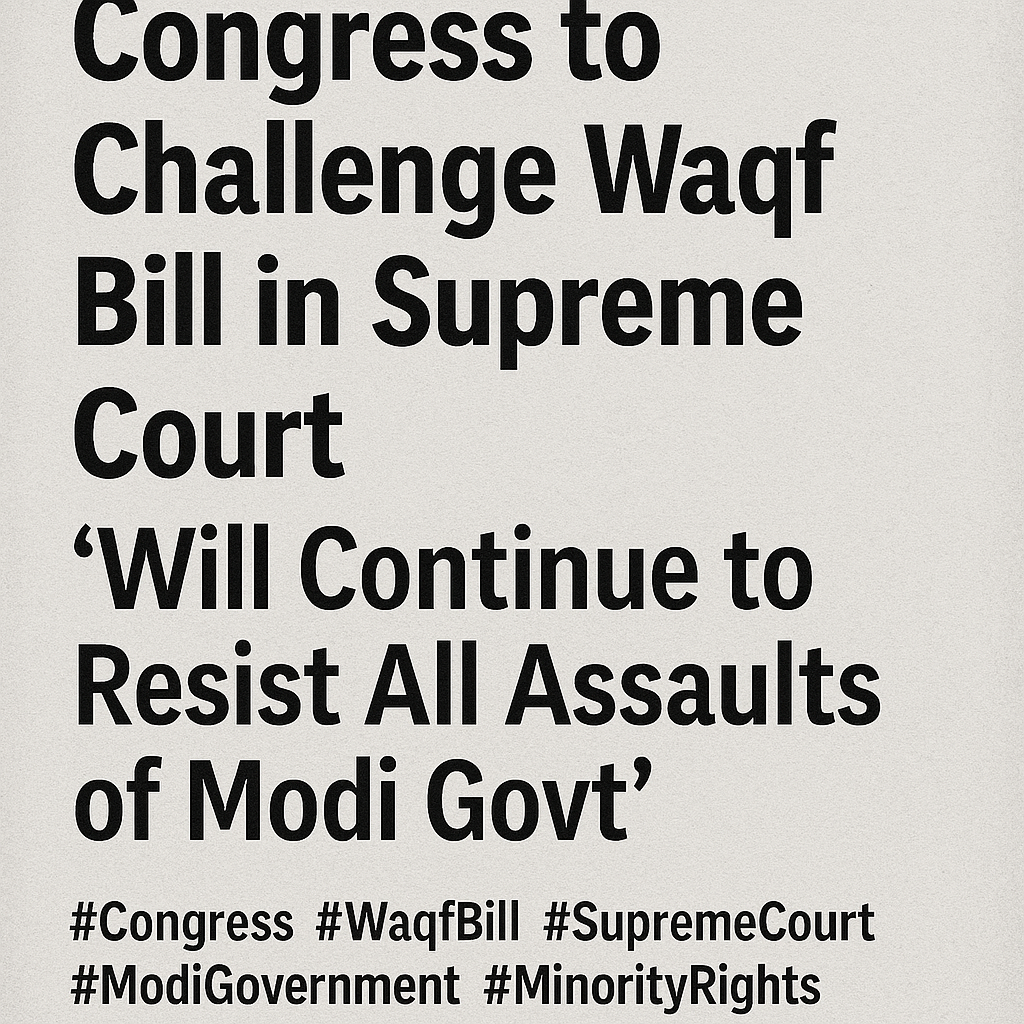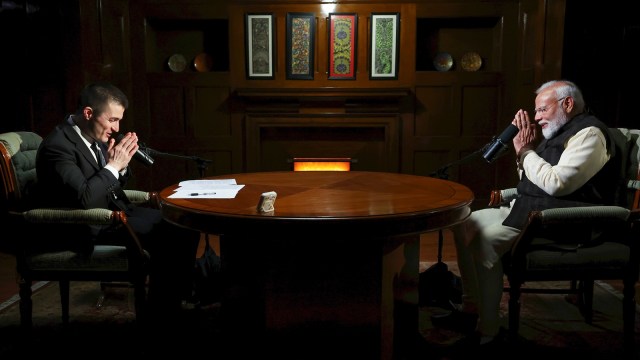In a sharp escalation of political tension, the Indian National Congress has announced it will move the Supreme Court to challenge the newly passed Waqf (Amendment) Bill, 2025. The party has accused the Modi-led central government of systematically targeting minority institutions and undermining the constitutional principles of secularism and religious freedom.
The Waqf Bill, passed amidst uproar in Parliament, has been criticized by opposition parties and minority groups for allegedly curtailing the powers of Waqf Boards and allowing greater government control over religious endowments. Critics argue that the bill seeks to dilute the autonomy of Waqf properties—lands and institutions endowed for charitable and religious purposes in the Muslim community.
Congress’ Stand:
Addressing the media at the AICC headquarters, senior Congress leader Jairam Ramesh said, “This bill is not just unconstitutional, it is morally wrong. It’s a continuation of the Modi government’s broader agenda to weaken minority institutions and centralize control. We will fight this in the Supreme Court and on the streets.”
He added that the Congress will also initiate a nationwide awareness campaign to expose what he called the “dangerous implications” of the legislation for India’s social fabric.
Provisions Under Fire:
The bill’s controversial provisions include:
-
Enhanced powers for the central government to “restructure or dissolve” state Waqf Boards.
-
Reduced community representation on governing bodies.
-
Eased norms for state acquisition of Waqf land for public projects.
Legal experts and activists have warned that the bill could open the door to arbitrary land grabs and weaken the historic protections accorded to Waqf properties under Indian law.
Reactions from Civil Society:
Several Muslim organizations and civil society groups have voiced strong opposition. All India Muslim Personal Law Board (AIMPLB) spokesperson Maulana Khalid Saifullah said, “This bill is a direct assault on religious freedom and the right of communities to manage their own institutions.”
Government’s Defense:
In contrast, the BJP government has defended the bill, claiming it brings “transparency and accountability” to Waqf affairs. Union Minister for Minority Affairs said the reforms are aimed at preventing misuse of Waqf land and improving governance.
Political Implications:
With general elections on the horizon, the Waqf Bill has become a flashpoint in the broader ideological battle between the BJP and the opposition. Congress’ legal challenge is expected to further energize its base, especially in minority-dense constituencies.
🗣️ Key Quote:
“We will continue to resist all assaults of the Modi government on India’s constitutional ethos. This is not just a legal battle—it’s a fight to preserve the soul of India,” said Mallikarjun Kharge, Congress President.



